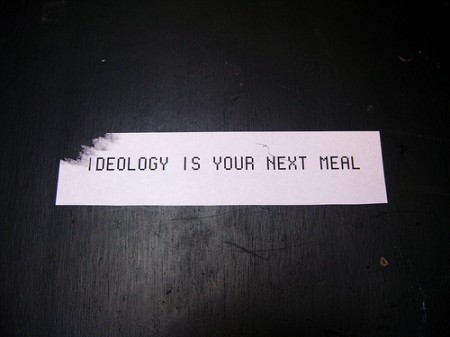
When Francis Fukuyama declared “the end of history” at the end of the Cold War, he wasn’t completely wrong. The history of ideas stopped.
I know that philosophy is no longer trendy, but we have to face it: Ideologies have played a vitally important role in human history. Whether the Enlightenment, capitalism, communism, fascism, socialism, anarchism and all the other “isms”, ideologies have, sometimes alone and sometimes in competition with each other defined political history. Competition between ideologies forced them to improve their practical implementation, and thus each theory became better and better by being in contact with other ideologies.
When Fukuyama declared that history had ended, he meant that ideological history had ceased to exist when capitalism won the fight against communism. Since then, no serious ideologies have been able to seriously question or challenge the neoliberal system.
As a result, we have become bad and inept at thinking outside the box. We no longer seriously question the system (that most of us live in), not even after one of its most serious crises. Few people seem interested in seeking out and spreading new form of thinking that promote something better than capitalism. This is a serious deficiency for our increasingly ideology-deficient societies.
We do no longer think about reforming or improving the society, we just think about fixing it. Think about our government’s response to the financial crisis. What did we do? Did we try to create a financial system in which crises are no longer possible? No, we just saved the system from itself and are now simply waiting for the next crisis to happen.
What we need, is out of the box-thinking that the re-think and re-examines the basis of our current system. A few philosophers have started on this journey and one of them is Slavoj Zizek, a Slovenian philosopher.
Slavoj Zizek doesn’t propose a completely a new system, but he challenges the very basis of it. He challenges the tenets and features of the capitalist system that we live in. For example, he challenges the concept of “new cultural capitalism” and the charity system. Charity is something increasingly important, but it doesn’t help the poor to live in a different condition, it just makes them survive longer, says Zizek.
He argues that instead of investing time in charity projects, we should rather start thinking about a system where poverty is no longer possible. We should challenge the normative basis of our current system to make sure that the atrocities of today will no longer be possible in the world of tomorrow.
Sadly our politicians are much more concerned with concrete problems than abstract theories. They would do well to take a step back from the prevalent materialistic approach they (and we) inhabit, and to remind themselves of this: What changed the world in the past is not necessarily technological innovation, but the ideologies that stood behind them.
Ideologies matter and new ideological approaches can change the world.
And here for some food for thought, an excellent RSA Animate video on Zizek’s ideas.

